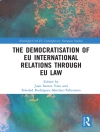First published in 1992 and now available in paperback in three volumes, Paul Rahe’s ambitious and provocative book bridges the gap between political theory, comparative history and government, and constitutional prudence. Rahe challenges prevailing interpretations of ancient Greek republicanism, early modern political thought, and the founding of the American republic. ‘[An] extraordinary book. . . . It is a great achievement and will stay as a landmark.’—
The Spectator (London) ‘This is the first, comprehensive study of republicanism, ancient and modern, written for our time.’—Harvey Mansfield, Harvard University ‘A stunning feat of scholarship, presented with uncommon grace and ease—the sort of big, important book that comes along a few times in a generation. In an age of narrow specialists, it ranges through the centuries from classical Greece to the new American Republic, unfolding a coherent new interpretation of the rise of modern republicanism. . . . World-class, and sure to have a quite extraordinary impact.’—Lance Banning, University of Kentucky Volume I: The Ancien Regime in Classical Greece Where social scientists and many ancient historians tend to follow Max Weber or Karl Marx in asserting the centrality of status or class, Rahe’s depiction of the illiberal, martial republics of classical Hellas vindicates Aristotle’s insistence on the determinative influence of the political regime and brings back to life a world in which virtue is pursued as an end, politics is given primacy, and socioeconomic concerns are subordinated to grand political ambition. Volume II: New Modes and Orders in Early Modern Political Thought Where many intellectual historians discern a revival of the classical spirit in the political speculation of the age stretching from Machiavelli to Adam Smith, Rahe brings to light a self-conscious repudiation of the theory and practice of ancient self-government and an inclination to restrict the scope of politics, to place greater reliance on institutions than on virtuous restraint, and to give free rein to the human’s capacities as a tool-making animal. Volume III: Inventions of Prudence: Constituting the American Regime Where students of the American founding are inclined to dispute whether the Revolution was liberal, republican, or merely confused, Rahe demonstrates that the American regime embodies an uneasy, fragile, and carefully worked-out compromise between the enlightened despotism espoused by Thomas Hobbes and the classical republicanism defended by Pericles and Demosthenes.
Об авторе
Paul A. Rahe is professor of history at the University of Tulsa.












